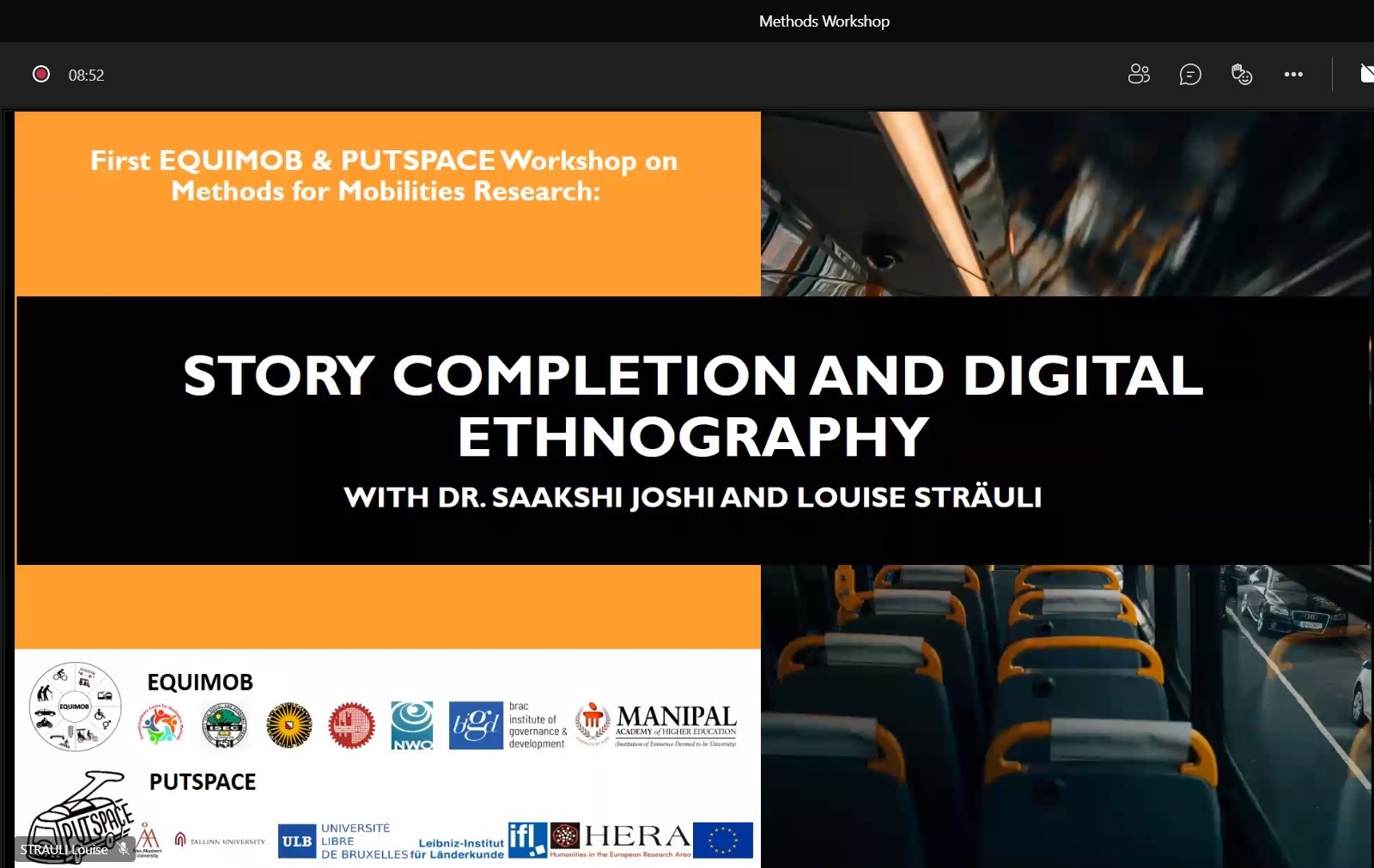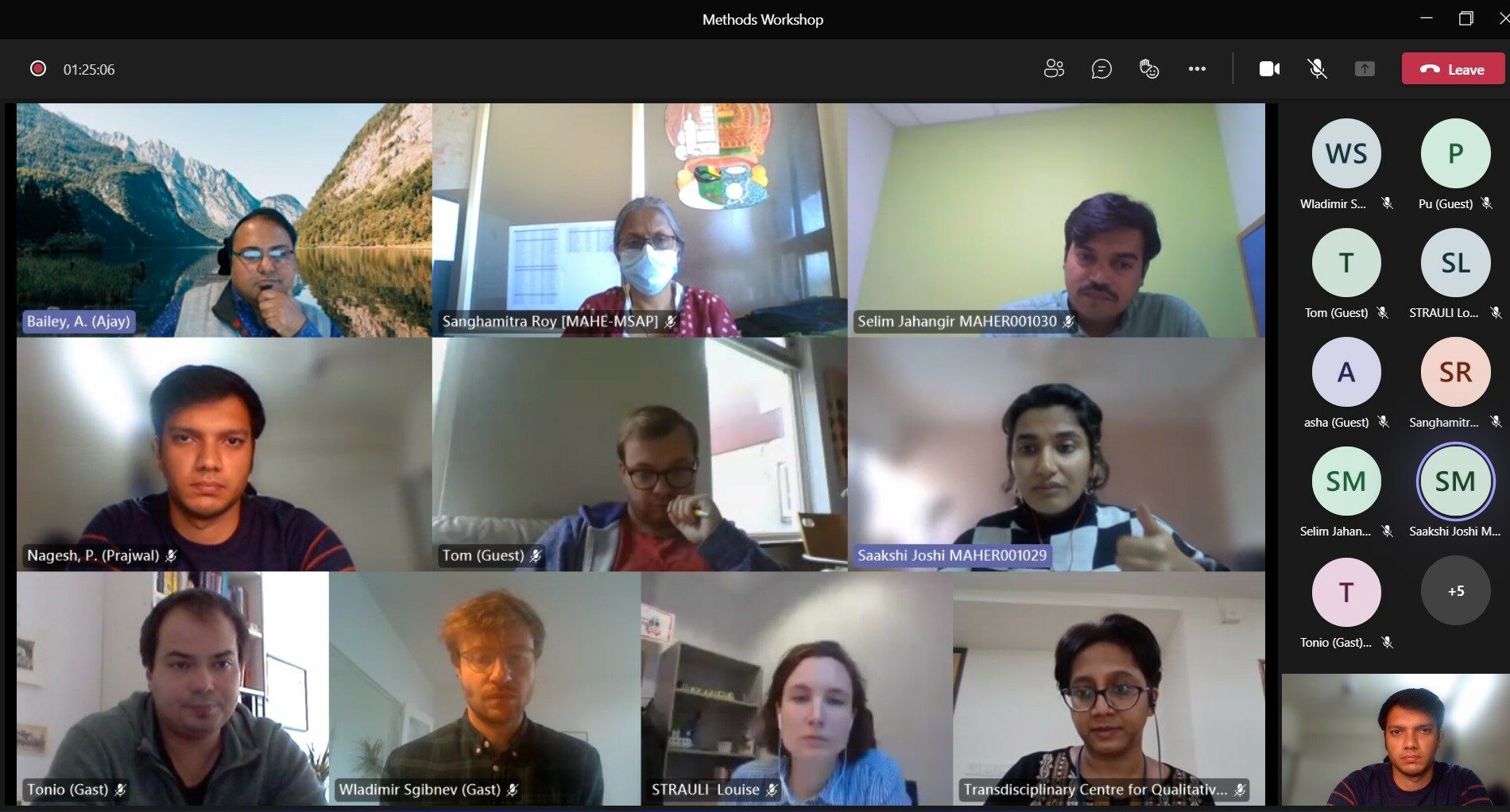Agenda
EQUIMOB-PUTSPACE methods workshop
On 06th Dec 2021, EQUIMOB and PUTSPACE co-organised the first methods workshop in a series aiming to explore methods in mobilities research. Louise Sträuli (PUTSPACE) and Saakshi Joshi (EQUIMOB) presented their experiences using Digital Ethnography and Story Completion during the pandemic for research focusing on public transport.

Louise used digital ethnography to explore practices and meaning-making of fare-evading passengers of public transport in Brussels, Belgium. Saakshi used story completion to understand women’s perceptions of travels using the Delhi Metro in India. Both the researchers introduced the respective methods, their use and development in different fields before discussing how they utilised these research methods in their works. The researchers concluded their presentations with reflections on issues to be considered and possibilities for conducting research using digital ethnography and story completion.

The penultimate portion of the workshop focused on questions from attendees around different aspects of the methods, including sample size, quality of data collected, using voice messages as an alternative to written formats, and potential of the methods to ‘stand-alone’ on their own without being used with other qualitative methods.


